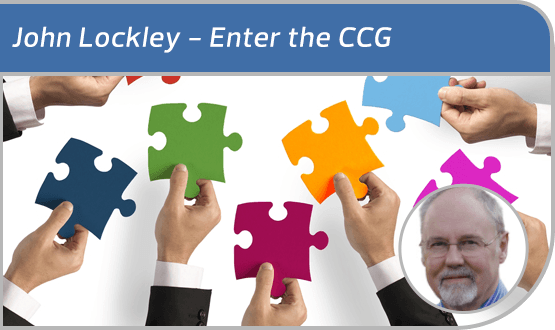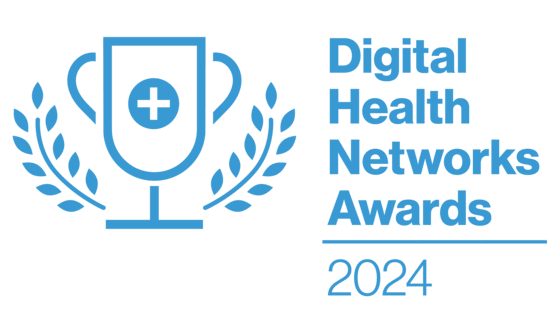Enter the CCG: on evidence based management
- 20 September 2016

Last month, I discussed the frequent but unintended gulf between the understanding, hopes and goals of NHS top leadership and the reality of life on the medical front line.
Why don’t the top brass in the NHS have a good feel for what is happening on the ground? Why don’t they understand the real needs and stresses of those working at the coalface? What can we do to abolish this disconnect?
Get the right data, that’s what. Make sure that top management knows what’s going on, rather than making assumptions, or extrapolating wildly from what they think they know.
In turn, acquiring the right data means first asking the right questions – comprehensively asked, systematically answered, properly analysed and with their conclusions fully, accurately and openly adopted.
Hear no evil
Do you remember the primary care groups introduced by the Blair government in the late ’90s? The rep from our practice to the PCG soon reported that although the politicians were portraying PCGs as encouraging localism they were anything but.
Information and directives were pouring out from the centre to the periphery, but without any corresponding mechanism for sending comments – particularly critical ones – from the periphery back to the centre.
The same situation occurred a few years later with the National Programme for IT. One of my GP colleagues, a highly regarded informatics expert, was specifically told by what had become, by this time, his primary care trust that he was not permitted to voice criticism of NPfIT.
It was quite clear that Connecting for Health, the organisation that ran the programme, had decided it knew best and was not going to listen to any dissent whatsoever – which arguably led to the £12 billion fiasco we all now know about.
So how can we ensure that those at the top of the NHS truly understand the situation at ground level? Hasn’t the ambience now changed? Surely there must be enough surveys and reports travelling upwards, informing them?
Better and worse
Well, yes and no. Surveys are funny things: what you ask, and how you ask it, largely determines the answers you get, and in turn their usefulness. Worse, you may well get only the types of answers you are angling for if you make it difficult for contributors to say what they really want.
How often do questionnaires about big projects ask us, in effect, to confirm the accuracy of the assumptions and decisions that have already been made by the people in charge?
Often, it feels as if top management has already decided what is needed, and that the ‘survey’ is merely to agree that it is absolutely right in the direction it has chosen.
How often do you have a chance to communicate what you really think about the situation, the underlying problems, and the plans?
Are you able to comment on the overall aims of the project, as opposed to simply being asked closed or even leading questions on more detailed areas? Is there anywhere to put comprehensive free-text comments, or is your word-count limited?
A recent tweet said it all: ‘The tricky thing with this sort of consultation concerns the tightly worded questions, with no space to disagree with or question the overall drive of the project.’
Quite.
And in any case, there’s always the nagging thought that by now the project has developed so far that those in charge can’t row back on their plans, and are only creating a survey so they can tick their own box: ‘Has there been consultation?’
(There’s probably no tick-box for the far more relevant follow-on question: ‘Have you taken any notice whatsoever of this feedback?’)
Honest reporting
There’s an antidote to this, from an unlikely source — the German Army during the first World War.
Almost uniquely among armies of the time, after every single action, German army units had a duty to report their experiences honestly and dispassionately — crucially, reporting what went wrong as well as what went right (and often very bluntly indeed).
By comparison, reports sent by British officers were far less comprehensive — possibly because of the celebrated British stiff upper lip and the attitude of ‘don’t tell tales’. Clearly, upward reporting under the German system was more accurate, and more widely shared — and therefore more open and more useful.
The bottom line
What’s the bottom line for NHS management?
* Sound out the front line staff at least once before making any plans – so you know the real issues.
* If you are going to visit the coalface, then do it unannounced – so no-one can cover up problems. Talk also to the junior staff and the locums, not just the bosses. And make it clear you are asking questions, not standing in judgement.
* Give frontline staff the opportunity to comment freely on all aspects of your plans — before, during and after they are designed.
* Share your thoughts and suggestions widely, so that everyone has a chance to spot the misunderstandings, the omissions, and the errors.
* Make it a duty for everyone to report fairly, openly, comprehensively and bluntly.
* Make certain that no-one is penalised for their opinions: you may need to anonymise the survey respondents.
* Take note of the comments — especially free-text ones (because these may concern subjects you haven’t thought to ask about in the main survey) — and incorporate them in your published final plans.
* And finally — accurate, all-inclusive, dispassionate upward reporting which is widely shared automatically removes any need for whistleblowing.
The NHS needs real data — warts and all — not convenient, self-serving reports. Dispassionate assessments, wide scrutiny and objective piloting of new ideas are essential.
Anaemic, self-congratulatory or relentlessly up-beat reports serve only to mislead everyone, leading those in charge to develop the wrong responses and the wrong mind-set.
Openness and blunt honesty are key. After all, why would anyone ever want to take important NHS decisions based on information which is known to be incomplete, inaccurate or biased?
About the author: Dr John Lockley is clinical lead for informatics at Bedfordshire Clinical Commissioning Group and a part-time GP. Follow him: @DrWJL




